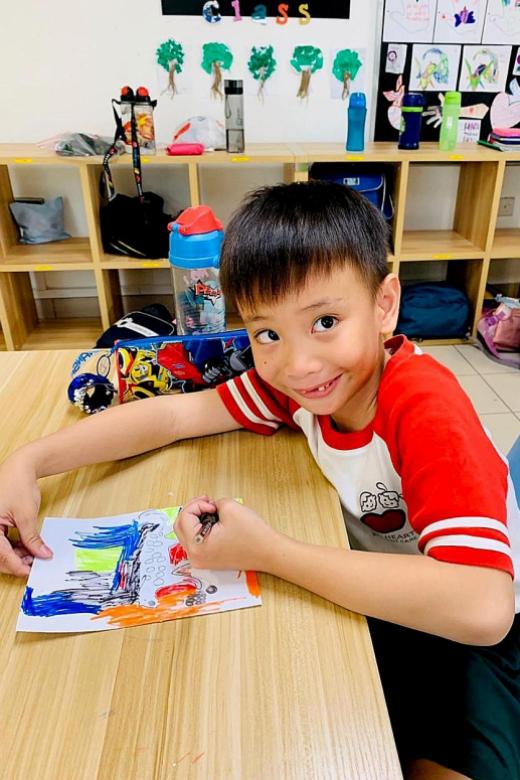Kids with developmental needs struggling to cope after circuit breaker
Kids with developmental needs struggling to cope after circuit breaker, say parents
Her son Gabriel, who has mild autism, made significant gains in his learning after more than a year of therapy.
But that was all undone during the circuit breaker when schools closed and lessons moved online.
Ms Jasmine Sim, 39, told The New Paper: "At the start of the year, he was doing his work independently, and he could read exam questions better.
"Now, it is all gone and it feels like we are back to square one."
Some children with developmental needs struggled during the circuit breaker, said experts. And even after schools reopened fully, a few have found it hard to readjust to their old routines.
Ms Sim, a housewife, said her 10-year-old son suffered breakdowns at home because he struggled to understand certain concepts during home-based learning (HBL). She added: "Children like him need more face-to-face engagement, but that was not possible during HBL."
Ms Caroline Essame, a social entrepreneur and occupational therapist, said: "Some children with existing (developmental delays) have regressed during the lockdown."
Ms Essame, founder of social enterprise CreateCatt, explained that being kept at home meant children did not get much of the sensory input their brains need to develop, and playtime with friends, a crucial aspect of children's social and emotional learning, was also limited.
Ms Jean Koh, assistant director of the Circle Of Care programme under Care Corner, said children from low-income families with learning needs were hit even harder by the pandemic.
She added: "For families who are not as well resourced, children had to share digital devices with their siblings during HBL, or had limited data to support their access to online learning."
Ms Yang Le, a behavioural therapist and co-founder of The Growing Academy, said while most of the children she works with - aged two to six - enjoyed relatively smooth transitions when schools reopened last month, about 20 per cent of them had trouble readjusting.
They threw tantrums, cried, or had to be retrained in toileting skills, she said.
Ms Koh added that adjusting to the structured environment of school after nearly two months at home was difficult for some children.
For Ms Noelle Chen's eight-year-old son Tristen, who was assessed by doctors to be a slow learner, having to play catch-up after HBL was so overwhelming he would have meltdowns and refuse to do homework.
Ms Chen, 30, a human resources executive, said: "To help him cope, his teachers give him more time to submit his work, and together, we comfort and reassure him."
Ms Sim, whose seven-year-old daughter Gessica also has mild autism, said: "In the past, I wouldn't be able to see what goes on during their therapy sessions, but because they moved online, I could sit with them during the lessons and it was an eye-opener.
"The teachers and therapists gave me notes, and I learnt skills that I can try with my kids to help them better."
Get The New Paper on your phone with the free TNP app. Download from the Apple App Store or Google Play Store now



